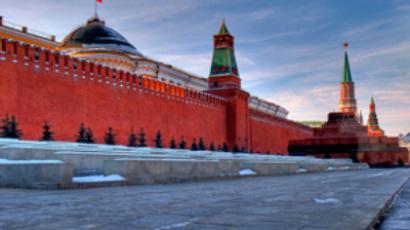US judge blocks portion of Arizona immigration law
US federal Judge Susan Bolton has blocked part of the controversial Arizona immigration law that would have allowed the police to check the immigration status of individuals in the US state.
In response to the injunction, Arizona governor Jan Brewer said she planned to appeal the ruling.
The decision to revoke parts of the legislation came just hours before it came into force and provoked protests among those for and against the law.
Joseph Nevins, an associate professor of geography at Vassar College said the decision was not surprising, but there was still more work to be done.
“It’s a victory first and foremost for civil rights and human rights,” said Nevins. “Illegal immigrants are part of our community. There are millions of people who are in the United States without authorization. They live in our communities, they go the schools with our children, they are members of synagogues and churches. They are part of the US fabric and they should be treated with respect and dignity.”
Ted Hayes, an anti-illegal immigration activist said that decision is a slap in face to African Americans.
“These folks have come into my country, in the name ironically, of people of color, my color, skin color and the civil rights legacy and they are equating their struggle of whatever they’re suffering in Mexico, Guatemala, El Salvador, Korea, and their struggle is not to be equated with the struggle of my enslaved ancestors and emancipated forefathers” said Hayes.
Hayes argued that illegal immigration robbed him of his civil rights legacy and that the immigration movement is not the new civil rights era, nor is it a race issue.
“These people [Latinos] who are claiming color are actually white people,” argued Hayes. “They are not black people.”
The original civil rights fight for African Americans is not over, argued Hayes, thus there cannot be a new one.
“If he thinks he is going to end injustices against African Americans by waging war, effectively, right by creating a repressive climate against human beings who happened to be born on the other side of the US-Mexican border he’s wrong and he’s fundamentally misguided in the sense that he’s creating the same type of racist climate that he is decrying in trying to defend the rights of African Americans,” said Nevins.
Hayes argued that racism is based on his skin color, on African Americans. The policy is not racist because it is not targeting African Americans and that the law targets those who are actually Caucasian white people using the “race card” as a ploy.
“They [Latinos] made it a race because they realize they can hide under my skin color,” said Hayes.
The policy is repressive to migrants and violates the human rights of migrant that are outlined in the United Nations Declaration of Human Rights, argued Nevins. Many who come to American are fleeing repressive states, seeking to realize their human rights. Thus, denying migrants entry violates their human rights, argued Nevins.
Many argue that illegal immigrants have violated the law and therefore do not have these rights.
“Simply because it’s a law doesn’t make it right. So, there used to be laws in the United States against interracial marriage,” said Nevins. “Simply because something is legal or something is against the law doesn’t mean it’s ethical or just.
He argued that the law itself violates human rights and a starting solution would be to give legal eights to all undocumented migrants currently in the United States.
“These are members of our community. Some of these people have been in the United States for decades. They should be able to vote, they should be able to pay taxes, they should be able to come out of the shadows and be full members of the community like everyone else,” said Nevins.
Hayes disagreed, arguing that the United States is not a nation of Immigrants and that such a notion forgets about the existence of African Americans. He also added that Latino community is biased against African Americans.
“They’re killing us,” said Hayes. “They shoot us down the streets. They push us out of our schools; they push us out of our homes, out of our jobs.”
He further argued that African Americans have no rights. Hayes said the solution in to address the problems in the home countries of illegal immigrants to prevent the need for migrants to flee to America.
Nevins agreed that the problems in home countries need to be addressed, but that America also needs to shift its view on illegal immigrants, recognizing that they are migrants not invaders.














